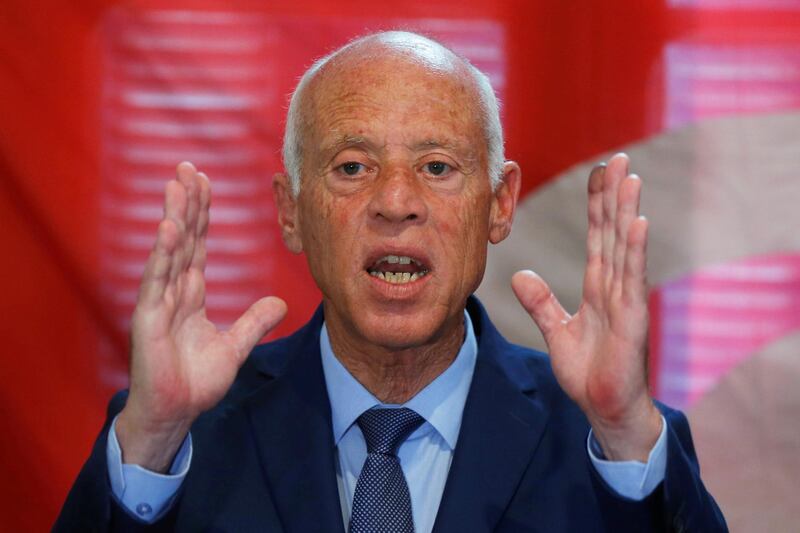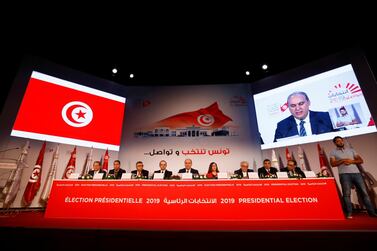There will be high political drama before a new Tunisian president is chosen in a runoff election by October, with one of the two candidates supposed to be on the ballot in jail and the second an academic of unknown quality.
But the emergence of law professor Kais Saied and detained media tycoon Nabil Karoui at the top of the initial poll this week signals the resilience of the country’s democracy, despite the setbacks the Arab Uprisings unleashed in Tunisia nine years ago.
The perseverance of pluralism and non-violence in Tunisia, while maintaining a secular tradition, is of huge symbolic significance to the democratisation movements that swept through the nominally republican Arab countries after the revolution.
According to many civil activists who played a large role in the Arab Uprisings, Islamists rode on its coattails, opening the way for militants and scaring off the West, as well large segments of the population who opposed religious rule.
In Tunisia’s first round presidential poll this week candidates linked to the Muslim Brotherhood and other Islamists came in third place or further down.
Prime Minister Youssef Chahed, a protégé of late president Beji Caid Essebsi, relegated himself to electoral obscurity after he said Zine El Abidine Ben Ali, the deposed dictator who is now sick, can return to the country.
Essebsi, who was backed by the security apparatus, died in July having failed to install his son Hafedh to succeed him. He had predicted that the majority of Tunisians would not endorse the Islamists, whom he described as anachronistic and intent on imposing clerical rule, which Tunisians do not want.
The third place candidate, Abdelfattah Mourou of the Islamist Ennahda party, could still be featured in the runoff if Mr Karoui, who is jailed on financial charges, is excluded. It would be another example of Islamists benefiting despite not being in the lead. Ennahda is the second largest bloc in legislature, with parliamentary elections due to be held alongside the second round of the presidential runoff.
In Syria, the Muslim Brotherhood dominated the opposition as the opposition sought to build political institutions in exile in Turkey, and later in Qatar, despite their absence at the outbreak of the 2011 revolt. Two years before, at the request of Qatar, the Syrian Brotherhood had suspended its opposition to President Bashar Al Assad.
Many saw the 2015 Russian intervention to prop up the Syrian regime, also supported by Iran, as the death knell of the Arab Uprisings. At that time, Lebanese parliament speaker Nabih Berri, a leading pro-Iranian figure in Lebanon, called the revolts a “huge conspiracy”.
Just when their spirit was presumed dead, huge protests toppled Algerian president Abdelaziz Bouteflika in April this year and Sudanese President Omar Ali Bashir, two of the Middle East and North Africa region’s last long-reigning autocrats.
The military power of both countries is still strong, but they are grappling with the challenge of a transition to democracy, with the Sudanese army agreeing to share power with civic figures. Similarly, in Tunisia, political fault lines may be developing along the three main groups: the civic democrats, Islamists, and groups linked with the army or the security apparatus.
In December 2010, Tunisian street vendor Tarek Bouazizi set himself on fire after local authorities in the city of Sidi Bouzid humiliatingly confiscated his wares. An action of ultimate despair, it was the catalyst for what became the Tunisian revolution and the repercussions are still playing out across the region.







